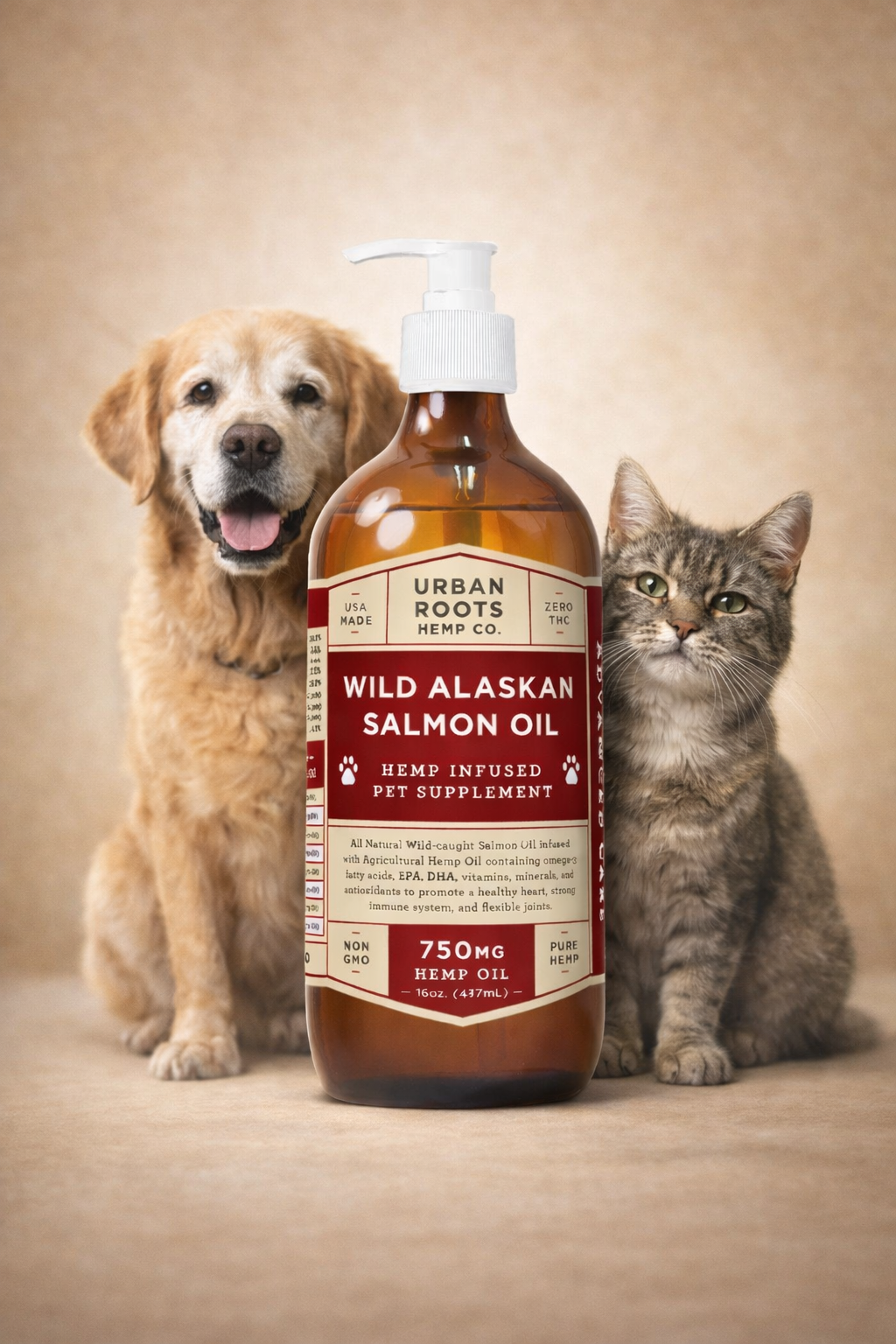Top Reasons to Use CBD for Pets


Our pets are with us for such a relatively short time period. We’ll have multiple pets throughout our lifetimes, but our dogs, cats, and other animals will likely just have us. That’s why many pet owners go to such great lengths to protect their furry friends and help them have the best life possible for the short number of years that we can both enjoy each other.
The problem is, a lot of animals suffer from very similar illnesses to us and have comparable bad habits like sedentary lifestyles or a bad diet that can lead to health problems down the road. To help combat these developments, veterinary medicine has grown to encompass nearly the same scope as human medicine. Many individual pet owners have also began taking things into their own hands and finding new and creative ways to help improve their animals’ health and well-being.
One way people are doing that is through trying CBD for pets.
Why People Use CBD for Pets
From painful inflammatory illnesses like arthritis to helping symptoms of seizures, all the way through digestive problems, lack of appetite, separation anxiety, and neurodegenerative diseases, pet owners try CBD for a host of different conditions. The potential benefits of CBD lie in its ability to restore balance to the body. It does this through its reported anti-inflammatory properties, neuroprotective properties, and interaction with the body’s—pet or human—nervous and immune systems.
In other words, people use CBD for pets for largely the same reasons they use it for themselves: to take advantage of its interaction with the body that may produce a wide variety of health and wellness benefits.
How Does CBD for Pets Work?
CBD works for pets in the same way that it works for us, by interacting with the endocannabinoid system. In humans, felines, canines, and other animals, the endocannabinoid system acts as a biochemical communication highway full of sensors, receptors, and enzymes. This network transmits critical information throughout the body and induces certain bodily responses in order to maintain homeostasis (a fancy word for balance).
The major components of your pet’s endocannabinoid system include:
- Endocannabinoids (similar to cannabinoids like CBD and THC but produced within our bodies, hence “endo”)
- Receptors in the nervous system and around your body that endocannabinoids and cannabinoids bond with
- Enzymes that help break down endocannabinoids and cannabinoids
These components work together to initiate and communicate changes within other bodily systems, like the nervous, immune, digestive, and skin.
Top Reasons People Use CBD for Pets
- Anxiety – it’s extremely common for dogs and other pets to experience varying levels of stress and anxiety, especially when in a new setting or when their human leaves for the day. Many pet owners have turned to CBD products to help ease their animal’s nervousness or anxiety.
- Arthritis and inflammation – as animals age, they can develop joint inflammation and deterioration. This is especially true for larger breed dogs, with about 20% of canines in the U.S. dealing with some form of arthritis. Pet owners are trying CBD for their animal’s joint pain in order to avoid powerful pain killers that may have detrimental side effects.
- Digestive problems - conditions like diarrhea and constipation are often the result of inflammation in your pet’s gut, large intestine, and other organs throughout the digestive tract. Similar to in humans, CBD is thought to possibly help certain digestive issues because of its widely reported ability to alleviate inflammation
- Lack of appetite in cats and dogs – if you’re noticing your dog or cat is starting to eat less than normal or is refusing their food, try changing up their diet and adding CBD hemp oil to their daily regimen. CBD is known for helping stimulate your pet’s appetite and can even help decrease nausea and vomiting.
- Dog seizures - several preliminary studiesdone in 2016 by Stephanie McGrath, D.V.M., a veterinarian and assistant professor of neurology at Colorado State University’s College of Veterinary Medicine and Biomedical Sciences, found that 89 percent of dogs suffering from epilepsy who received CBD in a clinical trial had a reduction in the frequency of seizures.
- Problems sleeping – in both animals and humans CBD is well known for its relaxing properties that bring about a sense of calmness. If your pet whines, paces, or is otherwise restless during the night, then you may want to try giving them CBD.
- Neurodegenerative diseases – for animals suffering from neurodegenerative diseases, including degenerative myelopathy and other spine and nerve issues, CBD is also showing a lot of promise. It’s been proven to help with Amyotrophic Lateral Sclerosis (ALS), Alzheimer’s, and Parkinson’s disease by protecting the brain cells from toxicity.
Is CBD Safe for Pets?
As we mention in a previous article of ours, the issue with definitively saying CBD is safe or not for pets right now is that the research is largely in the beginning stages. However, what we can say is that the clinical and preclinical research that has been undertaken looks extremely promising and we are starting to understand the vast scope of applications for CBD for pets.
According to this article on sciencenews.org, studies are quickly picking up the pace. They report that medical researchers are increasingly filling the CBD-research void, with the National Institutes of Health funding for CBD studies growing from zero in 2014 to an estimated 16 million in 2018. And that number is only expected to rise further.
What we know so far is that there are not any known serious negative side effects of CBD for either humans or animals, and that pets cannot overdose on CBD. It is completely non-toxic and does not produce euphoric or other psycho-active effects (in other words, CBD will not make your dog “high”). According to a report put out by the World Health Organization in 2017, CBD appears to be safe and well tolerated by both dogs and cats, and no serious negative effects have been observed.
How to Give CBD to Your Pet
If you and your vet determine that CBD will be a good choice for your pet, then there are several ways to give them the proper dose. The important thing to remember is that CBD has no known serious negative side effects in either dogs or humans, so there is little to worry about when giving it a try for your animal. The key with CBD dosage for pets is moderation—start off with a little bit and see how your dog does with it. If it seems to help their anxiety, digestive issues, movement, or other condition, then try giving them a little more to see if you can maximize the beneficial effects.
Depending on what type of food your dog, cat, or other pet eats, most owners will simply add the dosage of CBD oil to their food. This method works best if your pet eats wet food or porous dry food that will absorb all of the oil. You can also try adding oil to your pet’s treats.
Another common method for giving CBD to your pet is placing it directly in their mouth. For example, at Urban Roots you can purchase our pet tincture products and use the dropper to drop the CBD under or on their tongue.
If you have any questions about using CBD for your pet, then please reach out to our team at Urban Roots Hemp Co.!
We are working to partner with local animal clinics, spas, and daycare centers to make access for your furry family member as easy as possible. Let us know if there’s a local retailer you’d like us to reach out to!









